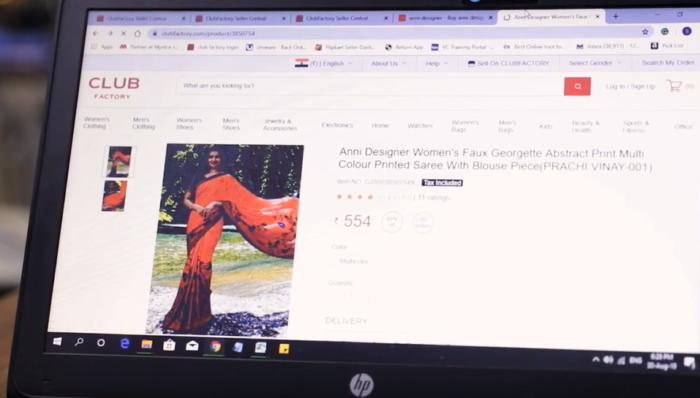- 14.0Kshares
- Share
- Tweet
- Facebook Messenger
With greater variety, convenience, and multiple payment/ delivery options, e-commerce platforms have revolutionized the way we shop. Online shopping is everyone’s go-to when looking for deals on electronics, buying furniture, clothes, medicines and even groceries. The industry’s scope and growth can be gauged by the fact that one of the richest men in the world owns the most popular e-commerce platform.

And India is a big piece of this pie. Tech-savvy Indians currently have a plethora of options while making purchase decisions online. So, when it comes down to it, the most important factor while making this decision is price.
But if e-commerce players have to keep prices low to attract customers, how do they make money?
E-commerce platforms provide a marketplace for various sellers to sell to the end-customer. In exchange, they charge a commission from these sellers which may be a fixed percentage of sales or net sales value.

Over time, these commissions have been increasing thereby improving the bottom lines of online marketplaces. However, the casualty has been the sellers whose margins have suffered. They have now resorted to passing on this added cost to customers eliminating their price advantage.
To cut a long story short, consumers like you and I end up paying more, so that the sellers make a decent profit and the e-commerce giants get their share of ever-increasing sales commission.
But newer entrants like Club Factory are trying to give consumers more power by disrupting the whole model. Here’s how.
Club Factory, an e-commerce site, launched in India in 2016. It wondered what would happen if sellers don’t have to pay ANY sales commission to the e-commerce platform? And that’s exactly what it did. It firmly established itself in the competitive market by introducing the ‘zero commission model‘. This allows both sellers and buyers to transact at low prices.
E.g. let’s say the cost of a t-shirt is Rs. 400 to the seller, and she decides to add Rs. 40 as profit for herself. But we’re not done yet, she will have to add another (say) 20% to the cost to make up for the e-commerce platform sales commission. So additional Rs. 80. The final cost of the t-shirt would be Rs. 400+40+80 = Rs. 520.
Now the same seller can sell the same t-shirt on a zero commission model at Rs. 440 only! You, as a consumer would get a damn-good t-shirt for less, delivered straight to your doorstep. How cool is that!
And obviously, this strategy has clearly paid off. Club Factory’s order volume saw a 700% growth this Diwali with many sellers receiving 15,000+ orders per day. Their app was the most installed on Google Play Store (worldwide) in the Shopping Category in September 2019.

Founder and CEO Vincent Lou was quoted saying,
“Club Factory is the only e-commerce player in India that does not charge any commission fee from sellers, which essentially means that sellers can achieve 20-30 percent cost savings when selling on our platform.”
This focus on local sellers, zero commission rates, lower rates of payment gateway and other logistics charges is probably why SMEs are flocking to their platform. We’ll just have to wait and see if other major players like Amazon and Flipkart respond by slashing their own commission percentages in the near future.
Clearly, the Indian e-commerce war is far from over and online shoppers like you and I should be laughing our way to the door (because hey, that’s where the delivery-person would be waiting with our latest purchased item) 😉
Happy shopping!
- 14.0Kshares
- Share
- Tweet
- Facebook Messenger




